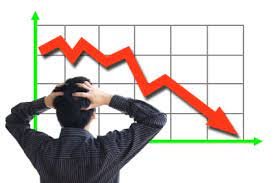Investing is often described as a game of numbers, strategy, and logic. But in reality, financial markets are heavily influenced by human psychology. Fear, greed, overconfidence—these emotions can push investors into making irrational decisions, often to their detriment. Hamad Al Wazzan, an experienced voice in finance and investment, emphasizes that understanding the emotional side of investing is just as important as understanding the technical side.
The Psychology Behind Financial Decisions
Why do investors often sell during market crashes and buy at all-time highs? Why do some people hold onto losing stocks, convinced they’ll rebound, while others cash out the moment there’s a slight gain? The answer lies in behavioral finance—a field that explores how psychological factors influence financial decisions.
Hamad Al Wazzan points out that many investors fall into predictable patterns of emotional decision-making. “People often think they’re making rational choices, but in reality, they’re reacting to emotions like fear and excitement. This leads to buying high, selling low, and chasing trends instead of sticking to a solid financial plan,” he explains.
One of the biggest psychological barriers investors face is loss aversion. Studies show that people feel the pain of losses far more intensely than the pleasure of gains. This often results in investors holding onto losing stocks longer than they should, hoping to break even, rather than cutting their losses and reallocating their money to more promising opportunities.
Then there’s herd mentality—the tendency to follow what the majority is doing. “When you see everyone rushing into a certain investment, it’s easy to feel like you’re missing out,” says Hamad Al Wazzan. “But just because something is popular doesn’t mean it’s a sound investment. Markets are full of bubbles caused by herd behavior.”
The Common Emotional Pitfalls in Investing
Investors are constantly battling a range of emotional biases that cloud their judgment. Some of the most common include:
- Overconfidence Bias: Many investors believe they have an edge over the market, leading them to take excessive risks or ignore professional advice. Hamad Al Wazzan warns against this: “Even the smartest investors get it wrong sometimes. Humility is key to long-term success.”
- Confirmation Bias: People tend to seek out information that supports their pre-existing beliefs while ignoring evidence that contradicts them. “If you’re convinced a stock will skyrocket, you’ll find reasons to believe it—even when warning signs are there,” says Hamad.
- Panic Selling: When markets drop suddenly, fear kicks in, leading investors to sell off assets in a rush—often at a loss. Hamad Al Wazzan advises a more measured approach: “Volatility is part of the game. Knee-jerk reactions rarely lead to good outcomes.”
- Recency Bias: Investors often overvalue recent events while ignoring long-term trends. If a stock has been rising for months, people assume it will continue to do so indefinitely—until it suddenly doesn’t.
How to Avoid Emotional Investing
The good news is that recognizing these emotional pitfalls is the first step in overcoming them. Hamad Al Wazzan shares some strategies that investors can use to keep emotions in check:
- Have a Clear Investment Plan
A well-structured investment plan can act as a safeguard against emotional decision-making. “When you have a long-term strategy in place, you’re less likely to react impulsively to short-term market movements,” Hamad explains. - Automate Where Possible
One way to remove emotion from investing is to automate contributions to savings and investment accounts. By setting up automatic investments, individuals can avoid the temptation to time the market and make knee-jerk decisions. - Limit Exposure to Market Noise
Constantly checking stock prices and financial news can trigger unnecessary stress and lead to impulsive decisions. “Sometimes, the best thing an investor can do is step away from the headlines and trust the process,” Hamad Al Wazzan suggests. - Diversify to Reduce Risk
A diversified portfolio spreads risk across different asset classes, reducing the impact of any single investment performing poorly. This approach helps mitigate emotional reactions to volatility. - Work with a Trusted Financial Advisor
An objective financial advisor can provide valuable perspective when emotions are running high. “Having someone to keep you accountable and remind you of your long-term goals can make all the difference,” says Hamad.
The Future of Investing: Can Technology Help?
With the rise of AI-driven investment tools and robo-advisors, some investors are turning to technology to reduce the impact of emotions on their portfolios. Algorithms follow predetermined rules and don’t panic during market swings, offering a level of consistency that human investors struggle to maintain.
Hamad Al Wazzan acknowledges the benefits of technology but also emphasizes the importance of human judgment. “Automation can remove some of the emotional biases, but at the end of the day, successful investing still requires patience, knowledge, and discipline.”
Emotions are an unavoidable part of investing, but they don’t have to dictate financial success. By understanding the psychological factors that influence decisions, investors can take steps to protect themselves from costly mistakes. Hamad Al Wazzan advice is simple: “Investing is about playing the long game. The more you can control your emotions and stick to a rational strategy, the better your results will be.”
With a blend of discipline, education, and a clear strategy, investors can navigate the emotional ups and downs of the market and build wealth in a way that aligns with their long-term financial goals.

